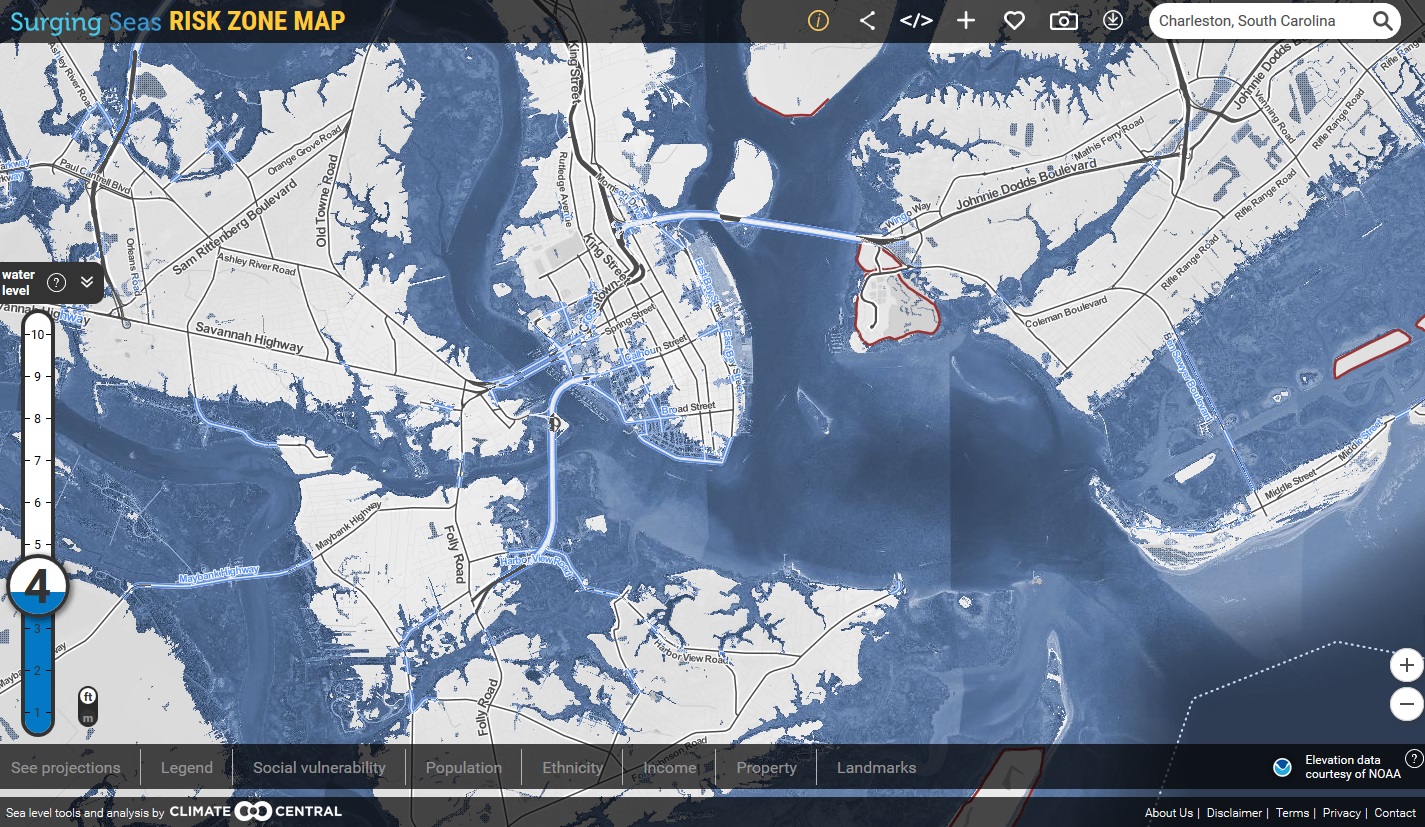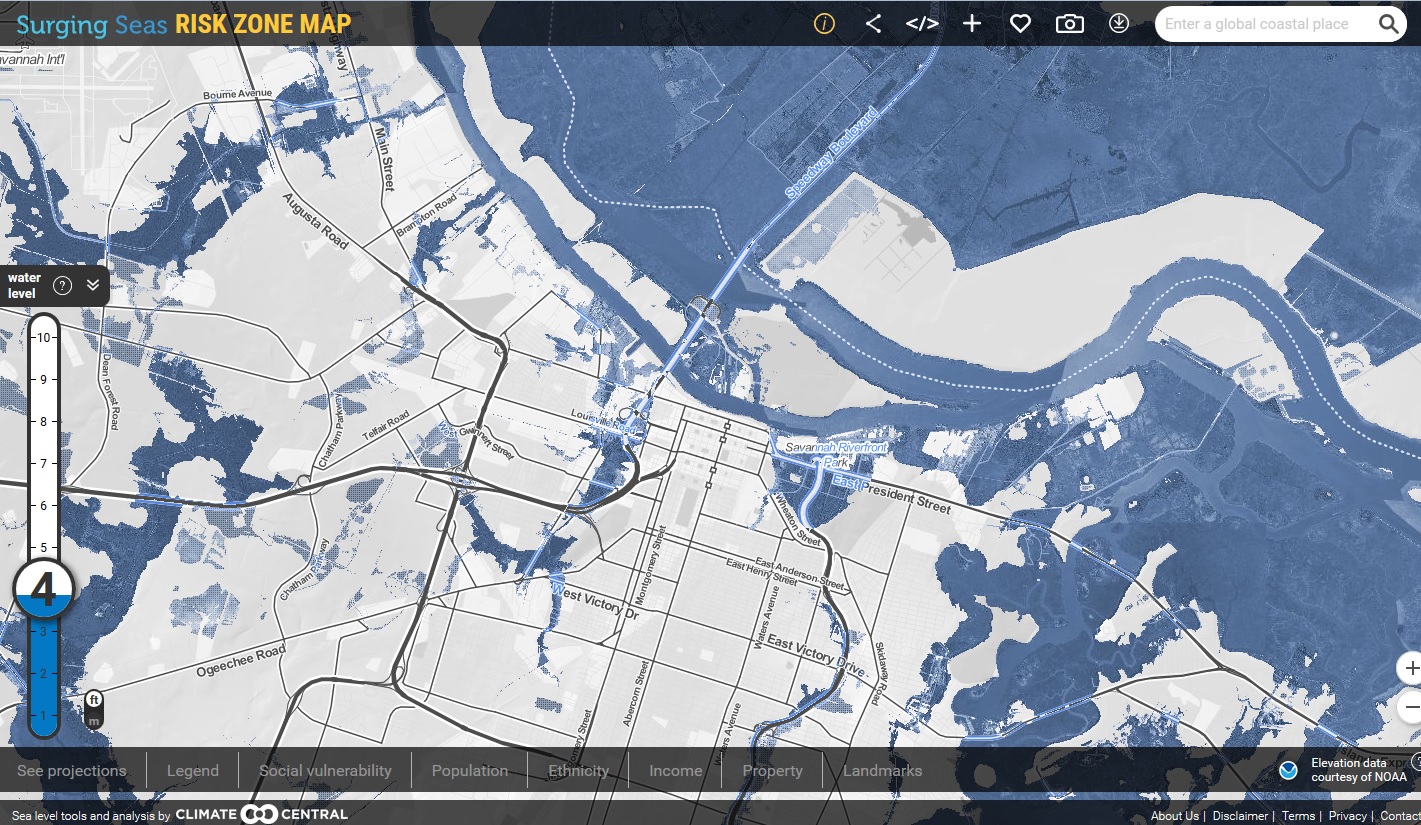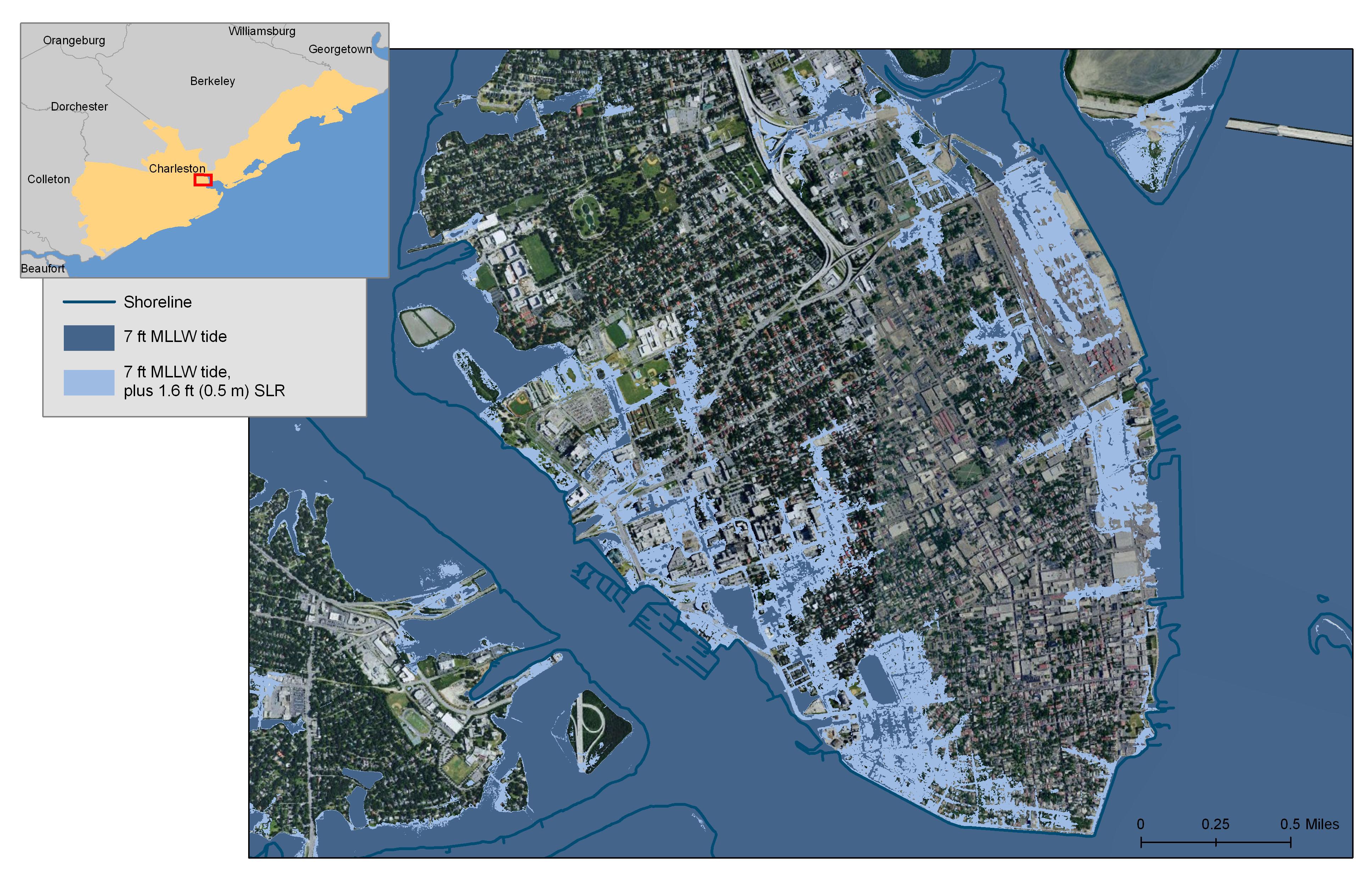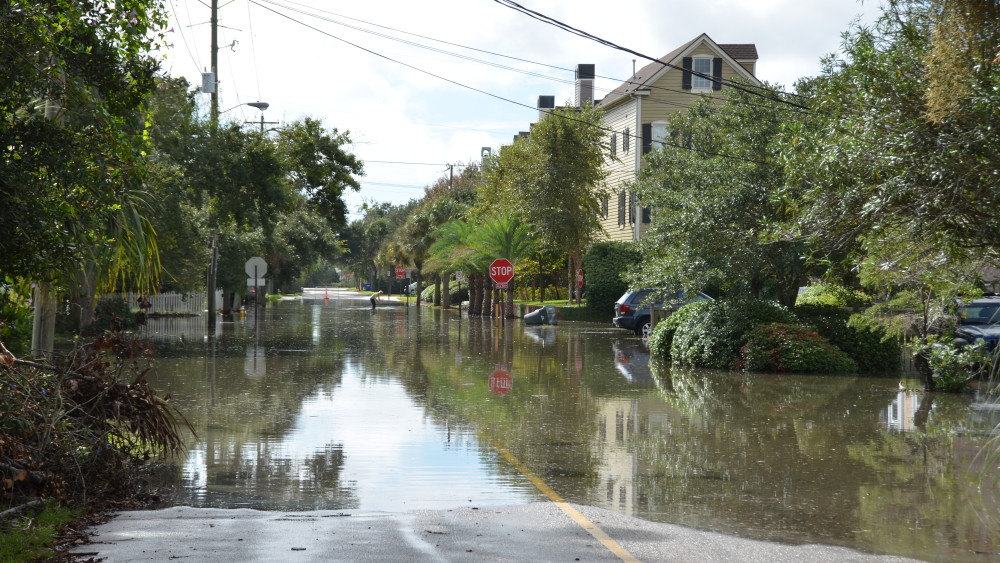For quite some time, sea level rise and the increase frequency of nuisance and tidal flooding has been well documented and felt first-hand in South Carolina’s Lowcountry. Lately it seems as if this flooding is happening on a regular basis. It turns out that nuisance flooding is going to become even more of a nuisance, especially for the Lowcountry. A new study published in the Proceedings of the National Academy of Sciences found sea level rise is happening faster than it has in centuries and it’s likely due to human activity. In addition to Charleston, Beaufort and Savannah were impacted with significant flooding in the last round of King Tides.

Here in Charleston we have documented more than a one-foot rise in the water level in the Charleston Harbor over the last 80 years. Some scientific projections predict a Sea Level Rise of at least a four-foot increase which could mean grave consequences for the Southeast. In addition to flooding, rising sea levels can hurt the economy, cause destructive erosion, contaminate water sources, and result in loss of habitat for wildlife and people.
Understanding and preparing for rising seas is a daunting task but, when you also factor in the harmful effects of increased storm surge, it highlights the need to make proactive planning a priority throughout our entire region. For example, when hurricane Hugo hit this region in 1989, there was a peak crest of over 12 feet. NOAA projects that, under similar hurricane conditions, we could experience 19-21 feet of storm surge. Also according to NOAA in the 1970’s, Charleston experienced two days of tidal flooding per year—but by 2045 the city is predicted to see 180 days of flooding annually. That’s nearly half the year.
Most cities and regions in the Southeast may not be prepared to deal with the issue of sea level rise, and often the plans they have in place don’t align with the latest scientific data. There is also concern that residents of these cities and regions don’t understand the impact of sea level rise and how they should plan as individuals.

That is why the South Carolina Aquarium in partnership with The Medical University of South Carolina, SCETV, The Department of Energy, and Allen University will be coordinating a series of Town Hall Meetings this spring and summer. The meetings will introduce sea level rise issues to residents and local experts will be on hand to answer questions and encourage a broad-based discussion.
The meetings will take place in the following coastal communities:
- Helena Island, SC—Penn Center—May 14, 2016
- Savannah, GA—Coastal Georgia Center—June 11, 2016
- Charleston, SC—South Carolina Aquarium—July 16, 2016
- Myrtle Beach, SC—To Be Determined—August 20, 2016



